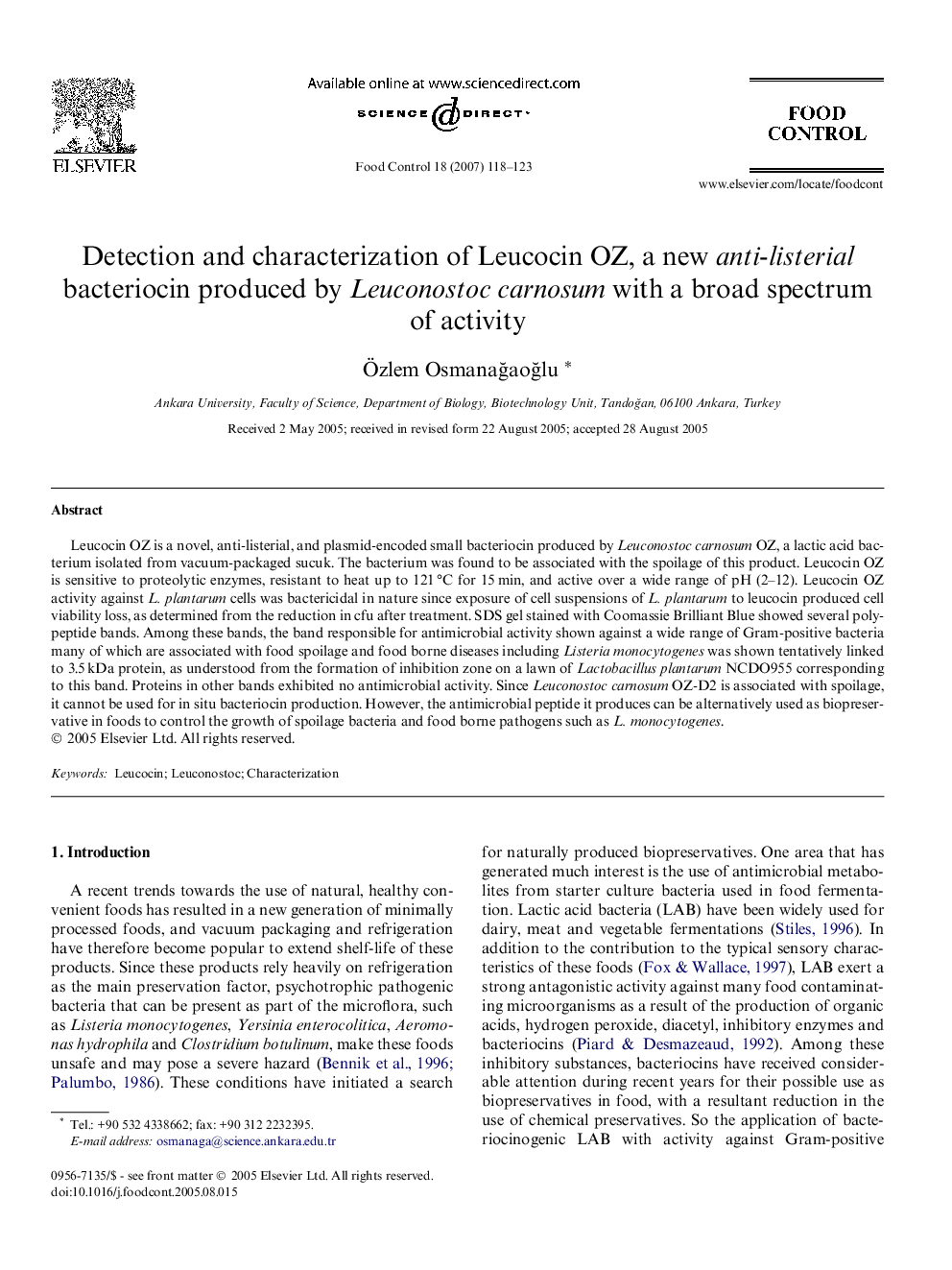| Article ID | Journal | Published Year | Pages | File Type |
|---|---|---|---|---|
| 4560640 | Food Control | 2007 | 6 Pages |
Abstract
Leucocin OZ is a novel, anti-listerial, and plasmid-encoded small bacteriocin produced by Leuconostoc carnosum OZ, a lactic acid bacterium isolated from vacuum-packaged sucuk. The bacterium was found to be associated with the spoilage of this product. Leucocin OZ is sensitive to proteolytic enzymes, resistant to heat up to 121 °C for 15 min, and active over a wide range of pH (2-12). Leucocin OZ activity against L. plantarum cells was bactericidal in nature since exposure of cell suspensions of L. plantarum to leucocin produced cell viability loss, as determined from the reduction in cfu after treatment. SDS gel stained with Coomassie Brilliant Blue showed several polypeptide bands. Among these bands, the band responsible for antimicrobial activity shown against a wide range of Gram-positive bacteria many of which are associated with food spoilage and food borne diseases including Listeria monocytogenes was shown tentatively linked to 3.5 kDa protein, as understood from the formation of inhibition zone on a lawn of Lactobacillus plantarum NCDO955 corresponding to this band. Proteins in other bands exhibited no antimicrobial activity. Since Leuconostoc carnosum OZ-D2 is associated with spoilage, it cannot be used for in situ bacteriocin production. However, the antimicrobial peptide it produces can be alternatively used as biopreservative in foods to control the growth of spoilage bacteria and food borne pathogens such as L. monocytogenes.
Keywords
Related Topics
Life Sciences
Agricultural and Biological Sciences
Food Science
Authors
Ãzlem OsmanaÄaoÄlu,
